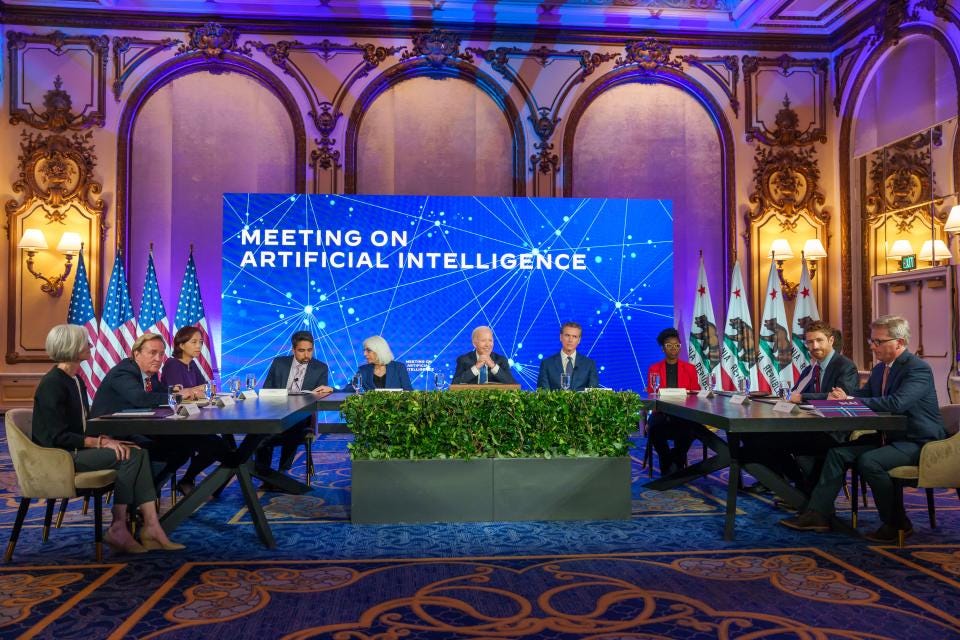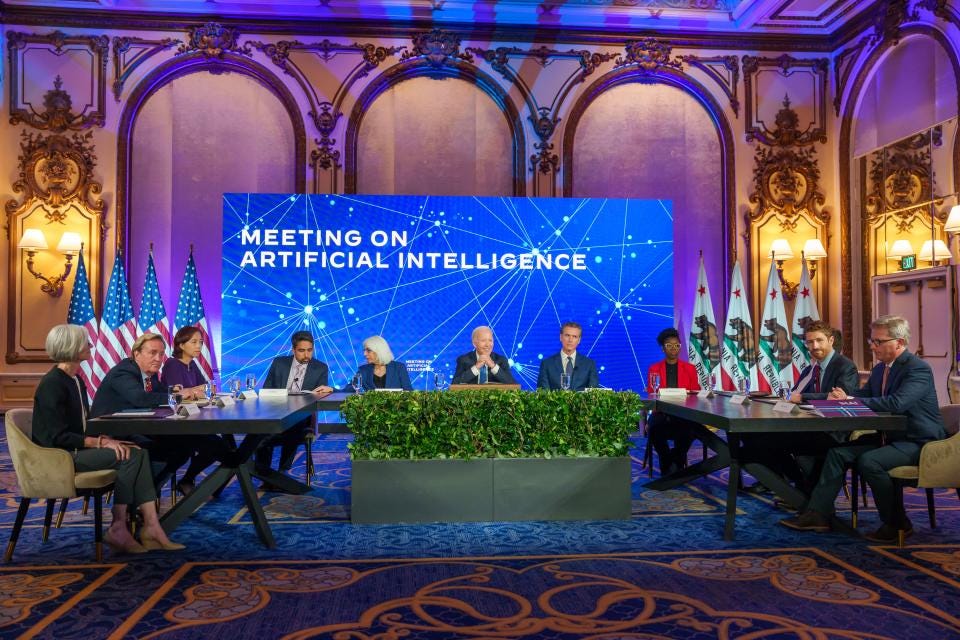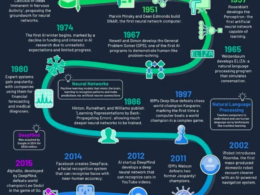Institute for Health Strategy (IHS)
research and strategy institute for
in-person health strategy and
digital health strategy
Joaquim Cardoso MSc
Chief Researcher for Institute for Health Strategy — research unit
Chief Editor for Instiute for Health Strategy — knowledge portal
Chief Strategy Officer (CSO) — for Institute for Health Strategy — advisory consulting
July 9, 2023
Key takeaways:
AI has the potential to achieve extraordinary feats like curing cancer.
- Deep, hands-on investment and collaboration are necessary to unlock AI’s vast potential.
- The current AI ecosystem is dominated by big industry, leaving government and academia as supporting players.
- Access to compute power is crucial for AI research and development.
The UK’s proposal for a public sector research cloud is five times greater than the US’s, indicating a need for increased investment in the US.
Government staffing challenges in AI are significant, with less than 1% of AI PhDs working in government.
- Careful regulation is essential to address the risks posed by bad actors and the rise of deep fakes.
Lack of investment in public scientific AI research could have long-term implications for democracy.
The Biden Administration is urged to take swift action and foster a partnership between the tech and policy worlds to ensure responsible AI development.
DEEP DIVE

Stanford HAI Faculty Urge President Biden to Approach AI with a Moonshot Mentality
At a recent meeting with the president, HAI leaders urged U.S. investment and leadership to unlock AI’s potential.
Stanford Human-Centered AI Institute
Fei-Fei Li and Rob Reich
jun 30, 2023
U.S. President Joe Biden met with leaders in AI including Stanford HAI Co-Director Fei-Fei Li and HAI Associate Director Rob Reich to discuss the opportunities and risks of artificial intelligence. The forum took place in San Francisco, California, on June 20, 2023.
Recently, we had the opportunity to join an esteemed panel of AI leaders who sat down with President Biden for an important discussion surrounding the future of artificial intelligence.
We told the president now is America’s moonshot moment for AI. It is time for the government to invest in AI like it has with NASA, and we must urgently adopt a mindset toward making sure America leads in order to truly unlock AI’s vast potential.
Harnessing AI will be one of the defining tasks of the 21st century. The technology has the power to achieve once unfathomable feats like curing cancer. Reaching that potential will require deep, hands-on investment and collaboration to catalyze advancement, balanced by responsible stewardship of AI’s integration into society.

In order to cement America’s leadership, we need to shift the current dynamics of our AI ecosystem — one in which big industry dominates, leaving government and academia to be supporting players.
To correct that imbalance, we must ensure more scientists have access to conduct AI research. Initiatives like the National AI Research Resource, for instance, would grant all of academia access to the compute power needed to conduct critical research.
Right now, when you measure the U.S. and UK’s proposals for a public sector research cloud, the UK’s is five times greater. That is simply unacceptable given the speed at which this technology is developing.
Expanding access to compute power would also alleviate the government’s significant staffing challenge. Today, less than 1% of AI PhDs go on to work in government; most enter industry (65%), largely because of the access to resources and higher salaries, according to this year’s AI Index. In fact, last year there were 32 significant breakthroughs in AI from industry — there were only three from academia and none from government.
Like with any technology, there are and will continue to be bad actors who intentionally exploit the power of AI. The rise of deep fakes and manipulation of reality pose a very real near-term threat, and careful regulation is crucial. But stifling this innovation not only risks handing the reins to another world power without America’s resources and moral compass, but also might very well cost us the chance of achieving extraordinary, life-saving breakthroughs during our lifetime.
The past few months have underscored the importance of our founding mission of advancing AI to better human conditions.
Lack of investment in public scientific AI research could hamstring this vision and have serious long-term implications for our democracy.
We urge the Biden Administration to take swift action and look forward to a continued partnership between the worlds of tech and policy to ensure that AI ends up on the right side of history, and humanity.
Fei-Fei Li is a co-director of the Stanford Human-Centered AI Institute and the Sequoia Professor in the Computer Science Department at Stanford University. Rob Reich is an associate director of Stanford HAI and the McGregor-Girand Professor of Social Ethics of Science and Technology in the Stanford School of Humanities and Sciences.
Originally published at https://hai.stanford.edu












